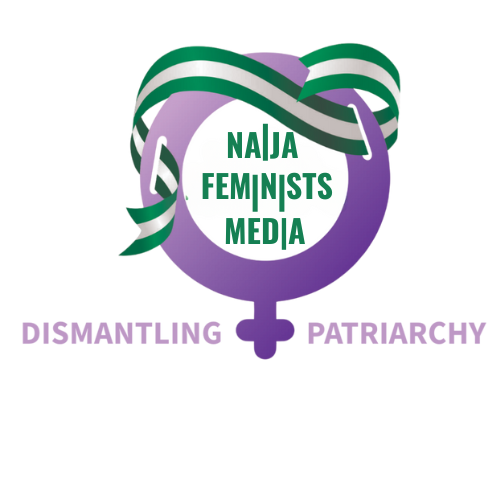|
Getting your Trinity Audio player ready...
|
Summary
The normalisation of male dominance and patriarchal norms in Nigerian culture perpetuates femicide by justifying domestic violence as a form of discipline and control. Despite the existence of local laws that criminalise violence against persons regardless of their gender, the lifetime prevalence rate of intimate partner violence in Nigeria is still as high as 63.2%. There is need for the government to move beyond enacting laws and monitor enforcement by punishing abusers regardless of political or social influence.
What began as a domestic scuffle on a random night in 2021 led to the cold-blooded murder of Isoken Christopher, a 39-year-old woman in Edo State, by her 45-year-old husband, John Christopher. After she reportedly refused to lend him N2000, his bruised ego led him to beat the mother-of-three to death in the presence of their eldest child, who will later testify against him.
Across Nigeria, many married women live with no autonomy over their bodies, property, income or earnings, most often as a result of the traditionally entrenched system of husbands lording over their wives. Data depict that 87.7% of men in Southern Nigeria exercise decisive control over their female partners. This is deeply rooted in societal norms that positioned women as inferior to men, despite modernisation and evolving socio-cultural trends; a lot of women still live under the despotic dominance of their husbands.
When domestic scuffles becomes death sentences
In 2023, a man whose identity remained undisclosed to the media allegedly murdered his wife in the Olota area of the Alimosho Local Government of Lagos State over her failure to cook his meal. He reportedly flared up after his wife offered him noodles instead of a proper dinner. The unlawful and unjustified killing of women is not a new phenomenon; it is, in fact, a global trend. United Nations data shows that every ten minutes, a woman is killed by an intimate partner or a family member–those expected to protect and look out for women are now the biggest threats.
The Founder and CEO of DOHS Cares Foundation, a non-profit organisation that tracks gender related killings in Nigeria, Ololade Ajayi, said, apart from the patriarchal root of femicide in Nigeria, another cultural practice that aids women’s killing is traditional dispute settlement.
Oftentimes, traditional leaders preach peace between couples in cases of domestic violence. Once survivors forgive their violent partners and return to the status quo, the abuse continues almost immediately and eventually leads to their death.
Globally, 1 in 3 women worldwide have been subjected to either physical and/or sexual intimate partner violence in their lifetime. As in this case, the catalyst for the violence is usually rooted in domestic scuffles over minor issues.
In March 2025, Wasila Abdullah, another 24-year-old, was reportedly flogged to death by her husband in Bauchi State, just for the “poor handling of food ingredients” meant for his dinner. Her death is one of the many recorded in Nigeria this year.
DOHS Cares Femicide Dashboard for the year 2025 reflects that over 88 femicide cases were recorded between January and June 2025, representing a woman being killed by an intimate partner, relative, or acquaintance every 49 hours.

Violence backed with cultural justifications
Women’s Rights Advocate, Oluwafunmbi Ogunsola, in an interview with this reporter, contends that the high rate of Femicide in Nigeria is a result of the patriarchal influence that forms the backbone of cultural violence against women.
“From bride price that treats women like property to proverbs that glorify male authority, culture gives men ownership over women’s bodies. Violence becomes ‘discipline,’ not crime. Women who speak out are shamed into silence with sayings like ‘a woman must endure.’ Communities praise endurance but ignore bruises. These traditions turn abuse into duty and submission into pride, stripping women of agency while rewarding male control,” she explains.
Africa’s Femicide Epidemic; a growing pattern
The latest UN report shows that Africa recorded the highest rates of intimate partner and family-related femicides in 2023. The continent is recognised for its diversity and cultural richness; however, despite the diversification in terms of cultural beliefs. There’s unanimity when it comes to the place of women in society–anywhere below the men.
While women are traditionally raised to internalise inferiority and be receptive to male abuse, men are groomed to be controlling, dominant and subduing. This is apparent in the normalised discrimination towards women and girls and the unequal power relations between women and men in society.
Unlearning Patriarchy begins at home
Speaking further, Ololade notes that, to reduce the unjustified violence against women,
“We must start at the family unit. There are existing gender roles that posit the girl child as the housekeeper, the only one who needs to learn how to cook in preparation for her husband’s house. We must dismantle these harmful stereotypes that put one child over the other and raise both genders with love, discipline and integrity.”
Culture as a tool of control
A survey conducted in the six northwestern states of Nigeria depicts that domestic violence is often rationalised through culturally embedded gender roles that position men as disciplinarians and women as subordinates. Many participants, particularly older men and traditional leaders, viewed certain forms of violence as acceptable responses to perceived disobedience or failure to fulfil domestic responsibilities. This inherently perceived right to correct women perpetuates continuous violence, subsequently leading to grievous bodily harm and even death.
Oluwafunmbi adds that the idea that a man can “discipline” his wife turns marriage into ownership. It tells men they are rulers, not partners. Violence becomes an expression of authority, and women are blamed for provoking it. Neighbours call it “a family issue,” police dismiss it, and religious leaders preach endurance. This cycle makes abuse look normal. As long as violent correction is mistaken for care, men will keep using violence to prove power, and women will keep paying the price for disobedience, she said.
In the south, the patriarchal system is also deeply embedded in cultural norms that enforce male dominance. Violence against women and children is embedded in the tenets of the Igbo traditional religion (ITR), which are manifested in cultural practices, ceremonies, rites, and rituals. The Omenala harbours sacred practices and norms, most of which subjugate women, and translates certain female actions, practices, expressions, and rights to taboo. There is a culture of silence in order not to ‘offend the gods’ or become ostracised, stigmatised, or viewed as culturally insensitive.
Reacting to this, Ololade observes that the traditional rulers and religious leaders need to use their platforms to promote the safety of women and girls. Sensitising their followers and creating awareness about the backwardness of these cultures will improve, if not totally, change mindsets. While preaching submissiveness to women, let the men understand that marriage doesn’t equal ownership, and violence is not the right way to correct a woman because love loses meaning when it’s harmful.
Beautiful Law; Low enforcement
Despite the existence of local laws that criminalise violence against persons regardless of their gender, the lifetime prevalence rate of intimate partner violence in Nigeria is still as high as 63.2%. A survey conducted across 35 states in Nigeria and the FCT by Invictus Africa reveals that, 10 years after the passage of the Violence Against Persons Prohibition Act (VAPP Act), more than half of Nigerians are unaware of its existence or the provisions of the law.
Ololade opined that the VAPP Act is a law with provisions that offer protection for women and girls. However, the body responsible for enforcing these provisions is indifferent to the injustice being committed against victims.
In terms of enforcement, only 23 of the 36 states have established sex offender registers, yet only 18 have integrated these into broader GBV tracking systems. This limits the registers’ utility for preventing repeat offences or informing policy decisions. Courts in 32 states have provisions on issuing Protection Orders, but 19 could not provide data on their issuance. These gaps, according to Invictus Africa, reveal significant shortcomings in monitoring and accountability.
We must do more than enacting laws
Oluwafunmbi notes that the government must move beyond enacting laws and monitor enforcement by punishing abusers regardless of political or social influence. She further enjoined civil groups to go beyond raising awareness to mounting pressure on the government to ensure that survivors receive justice.
She also said that the media, in its role, should stop glorifying abusers and tell stories that make women visible, empowered and believed. “Change happens when impunity becomes shameful, once the government, civil society, and media start treating violence as a national failure not a private tragedy, attitudes will shift,” She added.
She further explains that these harmful norms survive because patriarchy adapts, constantly reinventing itself. Olufunmbi said civilisation in the form of education changes language, not beliefs. Men in suits still think like village elders. Misogyny is inherited early through jokes, religion, and silence at home. Even “woke” spaces carry the same bias; men quote feminism but practise control. Society rewards compliance, not resistance, so women learn to adjust rather than challenge.
For Wasila, Isoken, and many other victims of femicide, whose stories ended too quickly because of backward societal practices, we must outgrow these harmful cultural sentiments. And until unlearning misogyny becomes part of education and daily life, progress will remain surface-level, modern in dress, patriarchal in thought.
Editor’s Note: This report is a part of the journalist’s participation in Naija Feminists Media (NFM) 2025 Editorial Fellowship. NFM is a women-led organisation committed to addressing women’s issues in Africa and beyond, fostering gender equality and democratic governance.













